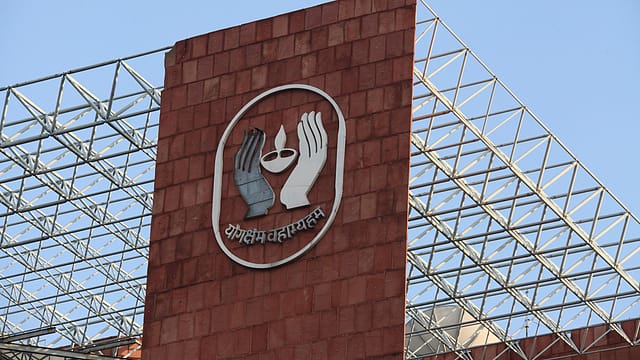LIC, and the premium for sovereign guarantee
ADVERTISEMENT

Another view on the controversial plan of LIC investing in IDBI Bank could be an addition to the noise. But, one piece of statistic will make it sound like a voice. And, distinct too.
Numbers tell tales. Yes, the statement is overused. And, it’s my all-time favourite. LIC has varying stakes across 22 listed public sector banks (PSBs), and its value as on June 29, 2018, was Rs 38,050 crore. A whopping 22.7% lower compared to Rs 49,211 crore a year ago.
The exercise was simple: It took the latest shareholding of LIC across the PSBs and the adjusted closing prices as on June 29 [Friday], and then the shareholding data for quarter-ended June 2017, and the adjusted closing price on June 30 last year. The mark-to-market difference of Rs 11,161 crore exceeds the anticipated investment of LIC in IDBI Bank, which got the regulatory go-ahead from Insurance Regulatory and Development Authority of India (IRDA) to acquire 51% stake in IDBI Bank, an exemption from the current norms which cap stakes of insurance companies at 15% on the higher side.
January 2026
Netflix, which has been in India for a decade, has successfully struck a balance between high-class premium content and pricing that attracts a range of customers. Find out how the U.S. streaming giant evolved in India, plus an exclusive interview with CEO Ted Sarandos. Also read about the Best Investments for 2026, and how rising growth and easing inflation will come in handy for finance minister Nirmala Sitharaman as she prepares Budget 2026.
This is not a first when LIC has to volunteer to be the “bailout agent” for the government. From initial public offerings (IPOs) to follow-on public offerings (FPOs) to offers for sale (OFSs), LIC has been at the forefront to ensure that the government does not face embarrassment on falling short of its disinvestment targets. Needless to say that central and state government bonds are mopped up by LIC with lesser eye towards credit ratings and yields.
All of this is the price that LIC pays for the sovereign guarantee that it enjoys. This is the biggest salient feature that LIC’s authorised insurance advisors flag when their prospective clients show inclination towards the private insurer’s products.
Anecdotally, I having seen a home loan application form where the prospective borrower wrote “ICICI’s LIC” in the field where personal financial details pertaining to existing insurance(s) was asked to be filled. That, a fairly well-educated borrower penning in ICICI’s LIC and not ICICI Prudential Life Insurance says a lot about the brand equity that LIC commands. And a lot of the equity has a lot to do with the government’s guarantee for LIC's offerings.
Now, back to the LIC-IDBI controversy; the investing move is akin to taking premium-payers for ride. After all, LIC wants to invest the premium payers’ hard-earned money in a bank which has gross non-performing assets (NPAs) worth Rs 555,88 crore as on March 2018. This was a 24.2% growth over Rs 44,753 crore worth of gross NPAs as of March 31, 2017. That year, IDBI Bank’s gross NPAs were 48.01% of the total gross NPAs worth Rs 93,209 crore across 21 private sector banks.
Also, LIC's exposure to banking is largely limited to the sizeable stakes it owns across PSBs and private banks. However, its decision to not have a management say in the affairs of IDBI Bank, where it already holds a 7.98% stake, is not in the interest of LIC and, in turn, its policy holders. Interestingly, LIC appoints nominee directors across a host of companies it has stakes in, including private sector banks such s Axis Bank, where LIC has a 13.62% (promoter’s) stake as of March 2018. Usha Sangwan, the first-ever woman managing director of LIC, is on Axis’ board as nominee director from October 2013.
What is even more amusing is a government observation from October 2013, when the department of financial services, under the finance ministry, observed that LIC had appointed 73 nominee directors back then, when it could appoint directors in 123 companies.
Rajiv Takru, department of financial services’ secretary, then was quoted to have said, “LIC, having invested equity and extended debt, is a major shareholder. It has to maintain the highest standards of corporate governance. There is no other way of doing it but by being on the board”. An Economic Times story of October 2013 further quoted Takru, “This assumes importance especially in the current stressed business environment because LIC has to look after the interest of its stakeholders.”
Also, in the 10 fiscals that the government has carried out bank recapitalisation worth Rs 202,169 crore, IDBI Bank has been recipient of Rs 21,023 crore—over seven fiscals—which accounts for 10.4% of the total recapitalisation. Yet, the bank is under the Reserve Bank of India’s prompt corrective action since May 2017, which would mean that it will be in capital hungry mode till its performance shows any improvement.
The question—whether IDBI Bank is a good investment decision?—is senseless to put forth. The right question to be asked is, “Will this be the last time that LIC pays the price of the sovereign guarantee?” And, the answer is everybody’s correct guess. No, the adventures of the bailout agent will continue to be funded by premium payers’ money.
